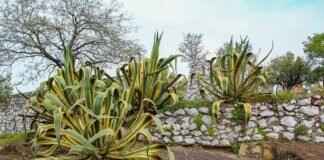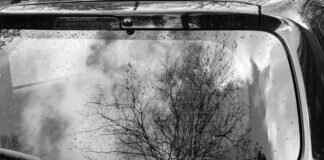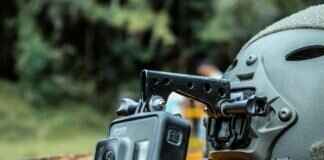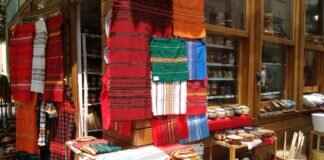This article explores the transformative impact of FintechZoom and artificial intelligence on investment strategies, examining trends, benefits, challenges, and future prospects in the financial technology landscape.
The Evolution of Fintech and AI
Over the past decade, the financial technology sector has undergone significant evolution, driven by advancements in artificial intelligence (AI) and machine learning. FintechZoom has emerged as a pivotal player, offering innovative solutions that enhance investment strategies. The integration of AI into finance has led to improved efficiency and better decision-making processes. Financial institutions are increasingly adopting AI technologies to analyze vast datasets, enabling them to identify trends that were previously undetectable.
Understanding AI in Investment Strategies
AI encompasses a range of technologies including machine learning, which allows systems to learn from data and improve over time. In investment strategies, AI is applied to analyze market data, predict trends, and optimize portfolios. By leveraging AI, investors can make data-driven decisions, minimizing risks and maximizing returns. The use of AI in finance is not just about automation; it is about enhancing the analytical capabilities of investment professionals.
Machine Learning Algorithms
Machine learning algorithms are at the core of AI’s application in finance. These algorithms can be categorized into supervised and unsupervised learning. Supervised learning involves training a model on historical data to make predictions about future market movements. In contrast, unsupervised learning identifies patterns within data without predefined labels, which is crucial for discovering hidden trends in large datasets.
Data Analytics in Investment
The role of data analytics in investment strategies cannot be overstated. AI-driven analytics tools provide investors with insights that enhance decision-making and risk management. By processing large volumes of data quickly, these tools help investors identify opportunities and threats in real-time, allowing for proactive adjustments to investment strategies.
Benefits of AI in Investment Strategies
Integrating AI into investment strategies offers numerous advantages. One of the primary benefits is increased accuracy in predictions. AI algorithms analyze market data more effectively than traditional methods, allowing investors to make informed decisions that reduce exposure to market volatility. Additionally, AI enhances efficiency in portfolio management by automating routine tasks, enabling real-time adjustments based on market conditions.
Challenges in Implementing AI in Finance
Despite its advantages, the integration of AI in finance is not without challenges. Financial institutions face regulatory compliance issues that require them to navigate complex legal frameworks while adopting AI technologies. Furthermore, data privacy and security concerns are paramount, as the use of AI necessitates access to sensitive information. Institutions must implement robust security measures to protect this data and maintain consumer trust.
The Future of AI in Investment Strategies
The future of AI in investment strategies looks promising, with emerging technologies such as blockchain and quantum computing poised to further revolutionize the financial landscape. These technologies may enhance AI’s capabilities in analyzing data and predicting market trends. As AI continues to evolve, its impact on investor behavior, risk assessment, and overall market dynamics will be profound.
In conclusion, the integration of AI into investment strategies through platforms like FintechZoom represents a significant shift in the financial technology landscape. As these technologies continue to develop, they will undoubtedly reshape the way investors approach the markets, offering new opportunities and challenges alike.

The Evolution of Fintech and AI
The financial technology landscape has undergone a remarkable transformation over the past few decades, driven by rapid advancements in technology and the increasing demand for efficiency and transparency in financial services. The integration of artificial intelligence (AI) into this ecosystem has further accelerated these changes, reshaping investment strategies and enhancing decision-making processes.
Initially, financial technology focused on automating traditional banking processes, such as online transactions and digital payments. However, as technology evolved, so did the scope of fintech. The introduction of big data analytics allowed financial institutions to harness vast amounts of information to better understand market trends and customer behavior. This shift laid the groundwork for the emergence of AI in finance, which now plays a pivotal role in investment strategies.
AI technologies, including machine learning and natural language processing, have enabled investors to analyze data at unprecedented speeds and accuracy. For instance, machine learning algorithms can sift through historical data to identify patterns and predict future market movements. This capability has transformed the way investment firms approach portfolio management, allowing for more informed decision-making based on real-time data analysis.
Moreover, AI has enhanced operational efficiency within financial institutions. Automated trading systems, powered by AI, can execute trades in fractions of a second, capitalizing on market opportunities that human traders might miss. This level of efficiency not only improves profitability but also reduces the risk of human error in trading decisions.
However, the evolution of fintech and AI is not without its challenges. As financial institutions increasingly rely on AI-driven solutions, they must navigate complex regulatory environments and ensure compliance with data privacy laws. The need for transparency in AI algorithms also raises questions about accountability and ethical considerations in investment practices.
In conclusion, the evolution of fintech and AI has significantly impacted the financial services industry, particularly in investment strategies. As technology continues to advance, it is crucial for financial institutions to adapt and leverage these innovations to remain competitive in an ever-changing landscape.
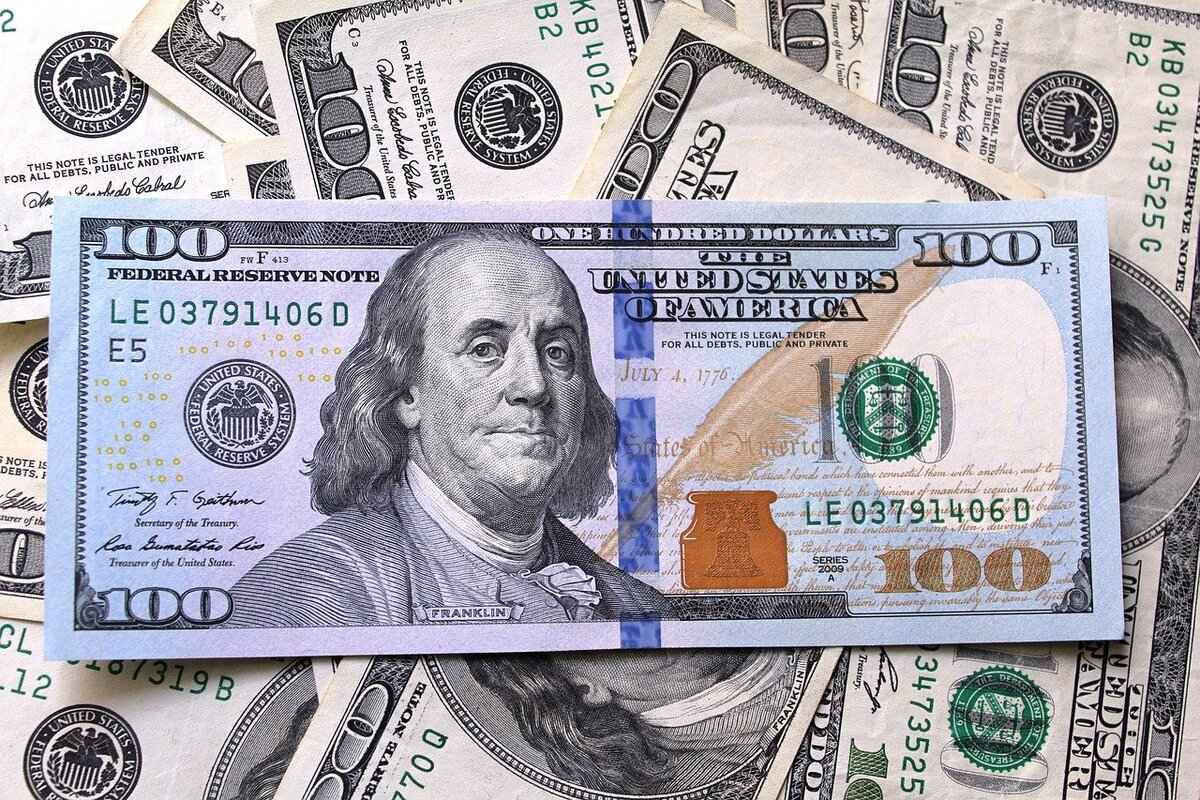
Understanding AI in Investment Strategies
In the rapidly evolving world of finance, artificial intelligence (AI) and machine learning have emerged as pivotal technologies that are reshaping investment strategies. Understanding how these technologies work and their practical applications is essential for investors looking to leverage data-driven insights for better decision-making.
At its core, AI refers to the simulation of human intelligence in machines that are programmed to think and learn. In the context of investment strategies, AI utilizes algorithms to analyze vast datasets, identify patterns, and make predictions about market trends. This capability allows investors to optimize their portfolios based on real-time data, thereby enhancing their competitive edge.
One of the fundamental concepts of AI in investment is machine learning, a subset of AI that enables systems to learn from data inputs without explicit programming. By employing machine learning algorithms, financial institutions can process historical data and derive insights that inform their investment decisions. For instance, these algorithms can predict stock prices by recognizing trends in historical data, allowing investors to capitalize on potential market movements.
There are two primary types of machine learning: supervised learning and unsupervised learning. Supervised learning involves training a model on a labeled dataset, where the algorithm learns to map inputs to outputs. This is particularly useful in finance for tasks such as predicting stock prices or classifying assets based on risk factors. Common techniques include regression analysis and classification methods, which help investors make informed decisions based on historical performance and market indicators.
On the other hand, unsupervised learning algorithms do not rely on labeled data. Instead, they identify hidden patterns within unstructured datasets. Techniques such as clustering and anomaly detection are employed to uncover insights that might not be immediately apparent. For instance, clustering can segment investors into different risk categories, enabling tailored investment strategies that align with individual risk appetites.
The integration of AI-driven data analytics in investment strategies further enhances decision-making capabilities. By leveraging advanced analytics tools, investors can gain insights into market dynamics, assess risk factors, and make data-driven predictions. These tools can analyze real-time market data, economic indicators, and even social media sentiment to provide a comprehensive view of the investment landscape.
Moreover, AI technologies facilitate the optimization of investment portfolios. By continuously analyzing market conditions and investor goals, AI can suggest real-time adjustments to asset allocations, maximizing returns while minimizing risks. This dynamic approach to portfolio management is particularly beneficial in today’s volatile markets, where traditional strategies may fall short.
As we delve deeper into the applications of AI in investment strategies, it becomes increasingly clear that these technologies are not merely trends but essential tools for modern investors. By understanding and embracing AI and machine learning, investors can enhance their decision-making processes, improve efficiency, and ultimately achieve better financial outcomes.
Machine Learning Algorithms
play a pivotal role in transforming the financial landscape, particularly in investment strategies. In finance, these algorithms are primarily categorized into supervised and unsupervised learning, each serving unique purposes and applications. Understanding these algorithms is crucial for investors aiming to leverage technology for better decision-making.
Supervised Learning involves training a model on a labeled dataset, where the input and output are known. This method is particularly effective in predicting stock prices and market movements. For instance, regression analysis is a common supervised learning technique that helps investors forecast future stock prices based on historical data. By analyzing past trends, investors can make informed predictions about future performance. Moreover, classification techniques can be employed to categorize stocks into different risk profiles, aiding in portfolio diversification.
On the other hand, Unsupervised Learning does not rely on labeled data, making it ideal for discovering hidden patterns within large datasets. Techniques such as clustering allow investors to group similar stocks based on various features, such as performance metrics and market behavior. This clustering can unveil insights into market segments that may not be immediately apparent, guiding investment strategies. Additionally, anomaly detection can identify outliers in stock performance, helping investors recognize potential risks or opportunities that require further investigation.
The applications of these machine learning algorithms in finance are vast and varied. For instance, hedge funds and investment firms utilize these techniques to develop algorithmic trading strategies, where trades are executed at optimal times based on predictive analytics. Furthermore, robo-advisors leverage machine learning to tailor investment portfolios to individual client profiles, enhancing user experience and satisfaction.
Moreover, the integration of machine learning algorithms with big data analytics allows for the processing of vast amounts of information in real-time. This capability not only improves the accuracy of predictions but also enables investors to react swiftly to market changes. As financial markets become increasingly complex, the importance of these algorithms will only continue to grow.
In conclusion, machine learning algorithms, both supervised and unsupervised, are essential tools in modern finance. Their ability to analyze vast datasets, predict market trends, and optimize investment strategies makes them invaluable assets for investors seeking to enhance their decision-making processes. As technology continues to evolve, the role of machine learning in finance will undoubtedly expand, offering new opportunities and insights for investors.
Supervised Learning Techniques
In the realm of finance, have emerged as powerful tools that enable investors to make data-driven decisions. These techniques leverage historical data to train models that can predict future outcomes, thereby assisting investors in navigating the complexities of the financial markets.
Supervised learning involves training a model on a labeled dataset, where the outcome variable is known. This approach is particularly beneficial for two main tasks in finance: regression analysis and classification. Each of these techniques serves distinct purposes and offers unique insights that can significantly impact investment strategies.
- Regression Analysis: This technique is primarily used to predict continuous outcomes, such as stock prices or market indices. By analyzing historical price movements and various influencing factors, regression models can identify trends and forecast future prices. For instance, a linear regression model may analyze the relationship between a company’s earnings and its stock price, allowing investors to make informed predictions based on past performance.
- Classification: In contrast, classification techniques are used to categorize data into discrete classes. For example, investors may use classification algorithms to determine whether a stock is likely to outperform or underperform the market. Techniques such as logistic regression, decision trees, and support vector machines are commonly employed in this context. By training on historical data, these models can classify stocks based on various features, including financial ratios, market sentiment, and macroeconomic indicators.
One of the primary advantages of utilizing supervised learning techniques in investment strategies is their ability to enhance decision-making processes. Investors can analyze vast amounts of historical data to identify patterns and correlations that may not be immediately apparent. This data-driven approach minimizes reliance on intuition and allows for more objective investment decisions.
Moreover, the integration of machine learning in supervised learning techniques enables continuous improvement of models. As new data becomes available, models can be retrained to adapt to changing market conditions, thereby increasing their predictive accuracy. This adaptability is crucial in a dynamic financial landscape where market trends can shift rapidly.
However, it is essential to acknowledge the challenges associated with supervised learning in finance. The quality of the input data significantly influences the model’s performance. Inaccurate or biased data can lead to misleading predictions, which may adversely affect investment outcomes. Therefore, investors must ensure that they are using clean, high-quality datasets and continuously monitor the performance of their models.
In summary, , including regression analysis and classification, are invaluable tools for investors seeking to make informed decisions based on historical data. By leveraging these techniques, investors can enhance their predictive capabilities, optimize their portfolios, and navigate the complexities of the financial markets with greater confidence.
Unsupervised Learning Approaches
Unsupervised learning is a pivotal aspect of machine learning that focuses on identifying patterns within datasets without prior labeling. This technique is particularly significant in the realm of finance, where large volumes of data are generated daily. By leveraging unsupervised learning methods, financial analysts can uncover hidden trends and anomalies that might otherwise go unnoticed.
One of the most common unsupervised learning techniques is clustering. Clustering algorithms group similar data points together, allowing analysts to identify distinct segments within a dataset. For example, in investment strategies, clustering can be used to categorize stocks based on their performance metrics, enabling investors to focus on specific groups that exhibit similar behaviors. This can lead to more informed decisions when constructing portfolios or identifying potential investment opportunities.
Another crucial unsupervised learning method is anomaly detection. Anomaly detection algorithms are designed to identify outliers or unusual patterns within data. In the financial sector, this is particularly valuable for fraud detection and risk management. By analyzing transaction patterns, these algorithms can flag suspicious activities that deviate from the norm, allowing financial institutions to take proactive measures to mitigate risks.
The significance of these unsupervised learning methods extends beyond mere pattern recognition. They play a vital role in enhancing the overall efficiency of investment strategies. By automating the process of data analysis, financial analysts can save time and resources, allowing them to focus on strategic decision-making. Moreover, the insights gained from clustering and anomaly detection can lead to the development of more robust investment models, ultimately improving returns.
Implementing unsupervised learning approaches does come with its challenges. Financial institutions must ensure they have the right infrastructure to handle large datasets and the necessary expertise to interpret the results effectively. Additionally, the interpretability of unsupervised learning models can sometimes be limited, making it crucial for analysts to complement these methods with domain knowledge.
In conclusion, unsupervised learning approaches like clustering and anomaly detection are integral to modern investment strategies. They provide invaluable insights into data, helping investors identify trends and manage risks effectively. As technology continues to evolve, the application of these methods in finance is expected to grow, further enhancing the capabilities of financial analysts and the overall investment landscape.
Data Analytics in Investment
In today’s fast-paced financial landscape, the integration of data analytics into investment strategies has become a game-changer. Investors are increasingly relying on sophisticated tools powered by artificial intelligence (AI) to navigate the complexities of the market. This section delves into how AI-driven analytics tools are revolutionizing investment decisions and enhancing risk management.
Data analytics plays a pivotal role in shaping investment strategies by providing actionable insights derived from vast amounts of data. With the advent of AI, analytics tools can process and analyze data at unprecedented speeds, enabling investors to make informed decisions. This section outlines the key functions of data analytics in investment strategies:
- Market Trend Analysis: AI tools can identify patterns and trends in historical data, allowing investors to forecast future market movements. By analyzing various factors such as economic indicators, trading volumes, and social media sentiment, these tools provide a comprehensive view of market dynamics.
- Risk Assessment: One of the critical advantages of data analytics is its ability to assess risk. AI-driven models can evaluate the potential risks associated with different investment options, helping investors to make decisions that align with their risk tolerance levels.
- Portfolio Optimization: Data analytics allows for the continuous optimization of investment portfolios. By analyzing the performance of various assets, AI can suggest adjustments to maximize returns while minimizing risks.
AI-driven analytics tools provide investors with insights that were previously unattainable. These tools leverage machine learning algorithms to analyze data sets and generate predictions. Here are some ways in which AI enhances decision-making:
- Predictive Analytics: By utilizing historical data, AI can predict future market trends with remarkable accuracy. This predictive capability allows investors to capitalize on opportunities before they become apparent to the broader market.
- Behavioral Analysis: AI tools can analyze investor behavior and market sentiment, providing insights into how external factors may influence market movements. Understanding these behavioral patterns helps investors make more strategic decisions.
- Real-Time Data Processing: The ability to process real-time data is crucial in today’s volatile market. AI-driven analytics tools can provide instantaneous insights, allowing investors to react swiftly to market changes.
Effective risk management is essential for successful investing. Data analytics aids in identifying potential risks and developing strategies to mitigate them. Here’s how:
- Scenario Analysis: AI tools can simulate various market scenarios, helping investors understand how their portfolios might react under different conditions. This foresight enables better preparation for market downturns.
- Stress Testing: Investors can use data analytics to conduct stress tests on their portfolios, assessing how they would perform during extreme market conditions. This process helps in identifying vulnerabilities and making necessary adjustments.
- Continuous Monitoring: With AI, investors can continuously monitor their investments and receive alerts about significant changes in market conditions or asset performance. This proactive approach to risk management is crucial in minimizing losses.
In summary, the integration of data analytics in investment strategies not only enhances decision-making but also significantly improves risk management. As AI technology continues to evolve, its role in the financial sector will only become more pronounced, providing investors with the tools they need to navigate the complexities of the market with confidence.
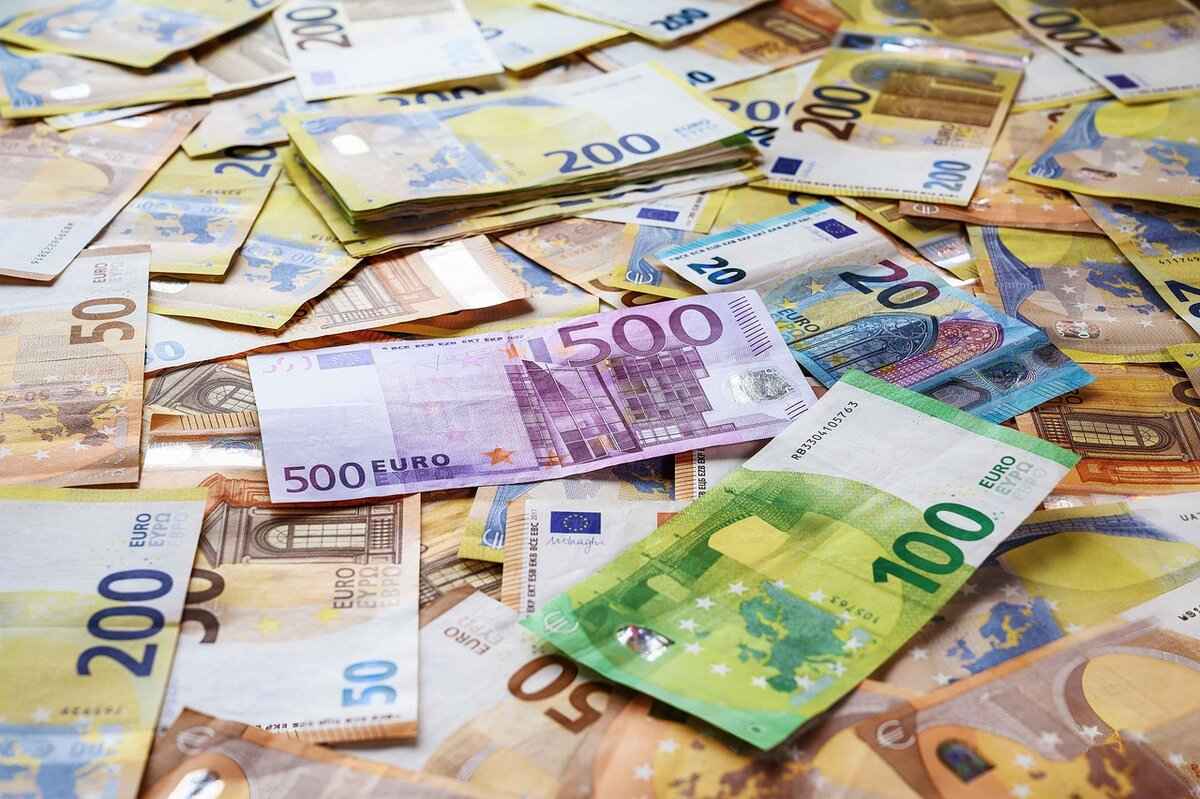
Benefits of AI in Investment Strategies
Artificial Intelligence (AI) is rapidly transforming the landscape of investment strategies, offering a plethora of benefits that enhance decision-making processes for investors. By integrating AI into their strategies, financial institutions can achieve **improved accuracy**, **enhanced efficiency**, and the ability to **process vast amounts of data** quickly and effectively. Let’s explore these advantages in detail.
- Improved Accuracy in Predictions
AI systems utilize advanced algorithms to analyze historical data and identify patterns that may not be immediately apparent to human analysts. This capability allows for **more accurate predictions** regarding market trends and stock performance. By leveraging machine learning, AI can continuously learn from new data, refining its models over time. This adaptability is crucial in a market characterized by volatility and rapid changes, enabling investors to make informed decisions that mitigate risks. As a result, the accuracy of predictions can significantly enhance portfolio performance, leading to better returns on investment.
- Enhanced Efficiency in Portfolio Management
The integration of AI into portfolio management processes streamlines various tasks that would traditionally require significant human intervention. For instance, AI can automate routine functions such as trade execution, rebalancing, and performance monitoring. This automation not only saves time but also reduces the likelihood of human error, which can be costly in the fast-paced world of finance. Furthermore, AI systems can provide **real-time insights** and recommendations based on current market conditions, allowing investors to adjust their strategies swiftly in response to changing dynamics.
- Ability to Process Vast Amounts of Data
In today’s data-driven environment, the volume of information available to investors is staggering. Traditional methods of data analysis can be slow and inefficient, often leading to missed opportunities. AI excels in processing vast datasets at unprecedented speeds, enabling investors to gain insights from diverse sources, including social media sentiment, news articles, and economic indicators. This capability not only enhances the depth of analysis but also allows for the identification of emerging trends before they become widely recognized in the market.
- Risk Management and Mitigation
AI plays a pivotal role in risk management by providing tools that allow investors to assess and quantify risks more effectively. Through predictive analytics, AI can identify potential market downturns or anomalies, enabling investors to take preemptive actions. Additionally, AI can simulate various market scenarios, helping investors understand the potential impact of different strategies on their portfolios. This proactive approach to risk management is essential for navigating the complexities of financial markets.
- Personalization of Investment Strategies
Another significant advantage of AI in investment strategies is its ability to tailor recommendations based on individual investor profiles. By analyzing an investor’s preferences, risk tolerance, and financial goals, AI can create personalized investment strategies that align closely with their specific needs. This level of customization enhances investor satisfaction and engagement, as clients feel their unique circumstances are being considered in the decision-making process.
In conclusion, the integration of AI into investment strategies offers numerous benefits, including improved accuracy, enhanced efficiency, and the capability to process vast amounts of data. As technology continues to evolve, the role of AI in finance will likely expand, providing even greater advantages to investors and financial institutions alike.
Increased Accuracy in Predictions
In the ever-evolving world of finance, the integration of artificial intelligence (AI) has significantly transformed investment strategies. One of the most remarkable benefits of AI is its ability to enhance the accuracy of market predictions. This section delves into how AI technologies empower investors to make more informed choices, ultimately minimizing risks associated with market volatility.
AI utilizes advanced algorithms and machine learning techniques to analyze vast datasets, identifying patterns and trends that may not be apparent to human analysts. By processing historical data, economic indicators, and even social media sentiment, AI systems can forecast market movements with a higher degree of precision. This predictive capability allows investors to anticipate changes in the market, making it easier to devise strategies that align with potential outcomes.
Big data plays a crucial role in enhancing the accuracy of market predictions. AI systems can process and analyze large volumes of data from various sources, including financial reports, news articles, and social media platforms. This comprehensive analysis helps in understanding market sentiment and investor behavior, providing deeper insights into potential price movements. By leveraging big data, AI enhances the reliability of predictions, allowing investors to make decisions based on a more complete picture of the market landscape.
Another significant advantage of AI in investment strategies is its ability to process real-time data. Traditional methods often rely on outdated information, which can lead to missed opportunities or misinformed decisions. AI algorithms can continuously analyze incoming data, allowing investors to react swiftly to market changes. This capability is particularly valuable in volatile markets where conditions can shift rapidly, enabling investors to adjust their strategies in real-time to mitigate risks.
Human decision-making is often influenced by emotions, biases, and cognitive limitations, which can lead to errors in judgment. AI systems, on the other hand, operate based on data-driven insights, significantly reducing the potential for human error. By relying on objective analysis rather than subjective opinions, investors can enhance the accuracy of their predictions. This shift not only improves individual investment outcomes but also contributes to overall market stability.
Numerous case studies highlight the effectiveness of AI in improving market predictions. For instance, hedge funds that have integrated AI-driven analytics into their investment strategies have reported higher returns compared to traditional funds. These funds utilize AI to identify trading opportunities and manage risk more effectively, illustrating the tangible benefits of adopting AI technologies in finance. Such success stories encourage more investors to embrace AI, further driving its adoption across the industry.
In summary, the integration of AI into investment strategies significantly enhances the accuracy of market predictions. By leveraging big data, real-time processing, and reducing human error, investors can make more informed decisions that minimize risks associated with market volatility. As AI technology continues to evolve, its role in shaping the future of finance will likely become even more pronounced, paving the way for a new era of investment strategies.
Efficiency in Portfolio Management
In the rapidly evolving landscape of finance, artificial intelligence (AI) has emerged as a game-changer, particularly in the realm of portfolio management. The integration of AI technologies into investment strategies not only enhances efficiency but also transforms how portfolio managers operate. This section delves into the various ways AI streamlines portfolio management processes, automating routine tasks and enabling real-time adjustments that align with market conditions and investor goals.
One of the most significant advantages of AI in portfolio management is its ability to automate repetitive tasks. Traditional portfolio management often involves time-consuming activities such as data collection, performance tracking, and compliance monitoring. With AI, these tasks can be automated, allowing portfolio managers to focus on more strategic decision-making. For instance, AI algorithms can continuously monitor market trends, analyze vast amounts of data, and generate reports without human intervention, drastically reducing operational time and increasing productivity.
Moreover, AI-driven systems can perform real-time analysis of market conditions. This capability is crucial for making informed investment decisions. By leveraging machine learning algorithms, AI can identify patterns and trends that may not be immediately visible to human analysts. For example, AI can analyze historical data to predict future market movements, enabling portfolio managers to adjust their strategies proactively. This level of responsiveness is essential in today’s fast-paced financial markets, where conditions can change rapidly.
Another important aspect of AI in portfolio management is its ability to align investment strategies with investor goals. AI can analyze individual investor preferences and risk tolerance, tailoring investment portfolios to meet specific objectives. This personalization enhances the overall investment experience, as clients receive recommendations that are better suited to their unique circumstances. Additionally, automated rebalancing of portfolios can be executed based on predefined criteria, ensuring that investments remain aligned with the investor’s goals without requiring constant manual intervention.
Furthermore, AI contributes to risk management in portfolio management. By analyzing market volatility and historical performance data, AI can help identify potential risks and suggest mitigating strategies. This proactive approach to risk management allows portfolio managers to make informed decisions that protect investor capital, especially during periods of market uncertainty.
To illustrate the impact of AI on portfolio management, consider the use of robo-advisors. These AI-driven platforms provide automated investment advice based on algorithms that assess individual investor profiles. Robo-advisors can manage portfolios efficiently, offering diversification and minimizing risk while maintaining low fees. This democratization of investment management enables a broader audience to access sophisticated investment strategies that were once limited to high-net-worth individuals.
In summary, the efficiency brought about by AI in portfolio management is multifaceted. From automating routine tasks to enabling real-time adjustments and personalized investment strategies, AI is reshaping the landscape of investment management. As technology continues to advance, the potential for AI to enhance portfolio management processes will only grow, providing investors with a more efficient and tailored investment experience.
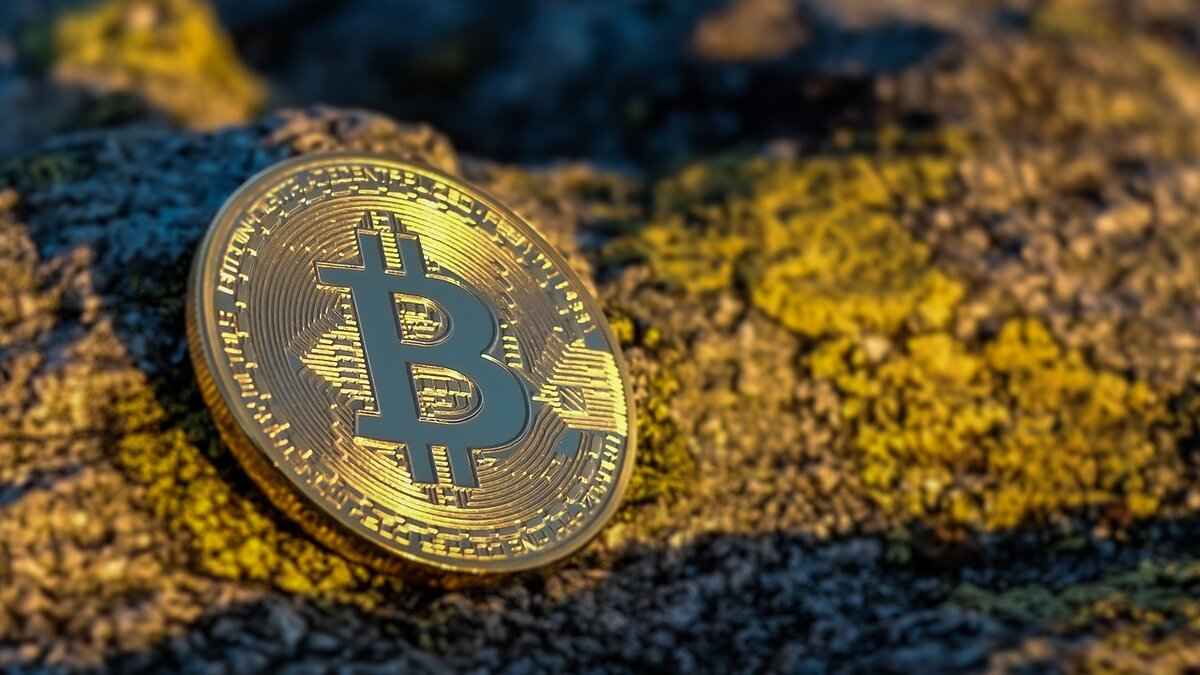
Challenges in Implementing AI in Finance
The integration of artificial intelligence (AI) into financial institutions’ investment strategies presents a myriad of opportunities, but it is not without its challenges. This section delves into the primary obstacles that financial institutions encounter, including regulatory compliance, data privacy issues, and the need for skilled personnel.
Regulatory Compliance Issues
One of the most significant challenges faced by financial institutions is ensuring regulatory compliance while implementing AI technologies. The financial sector is heavily regulated, and institutions must navigate a complex landscape of rules and guidelines that govern their operations. AI applications can often operate in a gray area, making it difficult for institutions to ensure compliance without clear regulatory frameworks. As AI technologies evolve, regulators are tasked with keeping pace, which can lead to uncertainty for financial institutions.
- Adapting to New Regulations: Financial institutions must continuously adapt to changing regulations that affect how they can use AI.
- Transparency and Accountability: There is a growing demand for transparency in AI decision-making processes, which can be challenging given the complexity of AI algorithms.
- Potential Penalties: Non-compliance can result in severe penalties, including fines and reputational damage.
Data Privacy and Security Concerns
Data privacy is another critical concern when integrating AI into investment strategies. Financial institutions handle vast amounts of sensitive data, and the use of AI raises questions about how this data is collected, processed, and stored. Ensuring the privacy and security of client information is paramount, as breaches can lead to significant financial loss and loss of trust.
- Data Protection Regulations: Compliance with regulations such as GDPR is essential, requiring institutions to implement stringent data protection measures.
- Risk of Data Breaches: AI systems can be vulnerable to cyberattacks, which can compromise sensitive financial data.
- Ethical Considerations: Institutions must consider the ethical implications of using personal data in AI algorithms.
Need for Skilled Personnel
The successful implementation of AI technologies in finance also hinges on the availability of skilled personnel. There is a growing demand for professionals who understand both finance and AI, and the current talent pool is often insufficient to meet this demand. This skill gap can hinder the effective deployment of AI solutions.
- Training and Development: Financial institutions must invest in training their existing workforce to bridge the skills gap.
- Attracting Talent: Competing for talent in the AI space is challenging, as many skilled professionals are drawn to tech companies.
- Collaboration with Educational Institutions: Partnering with universities and training centers can help cultivate a new generation of professionals equipped with the necessary skills.
In summary, while the integration of AI into investment strategies presents numerous benefits, financial institutions must navigate significant challenges related to regulatory compliance, data privacy, and the need for skilled personnel. Addressing these issues is crucial for the successful adoption and implementation of AI technologies in the financial sector.
Regulatory Compliance Issues
As the integration of artificial intelligence (AI) into the finance sector accelerates, the landscape of regulatory compliance becomes increasingly complex. Financial institutions are leveraging AI to enhance their investment strategies, yet they must navigate a myriad of regulatory challenges that accompany these advanced technologies. This section delves into the critical regulatory compliance issues that arise when implementing AI in finance, highlighting the balance between innovation and adherence to established regulations.
The financial industry is governed by a robust set of regulations designed to protect consumers, ensure market integrity, and promote financial stability. With the advent of AI, regulators face the challenge of updating existing frameworks to accommodate new technologies while maintaining these protections. Key regulations such as the General Data Protection Regulation (GDPR) and the Financial Industry Regulatory Authority (FINRA) guidelines play a pivotal role in shaping how AI can be utilized in finance.
One of the foremost concerns in the regulatory landscape is data privacy. Financial institutions must ensure that AI systems comply with stringent data protection laws. For instance, the GDPR mandates strict guidelines on how personal data is collected, processed, and stored. Non-compliance can result in hefty fines and reputational damage. Therefore, financial firms must implement robust data governance frameworks to ensure that AI-driven processes respect user privacy while still delivering insights.
Another significant regulatory issue is the transparency of AI algorithms. Regulators are increasingly calling for financial institutions to provide insight into the decision-making processes of AI systems. This includes understanding how algorithms are trained, the data they utilize, and their potential biases. The need for algorithmic accountability is essential to build trust among consumers and regulators alike, ensuring that AI applications do not inadvertently perpetuate discrimination or unfair practices.
AI can significantly enhance compliance efforts related to Anti-Money Laundering (AML) and Know Your Customer (KYC) regulations. However, financial institutions must ensure that their AI systems are designed to meet these compliance requirements. This involves using AI to analyze customer data effectively while adhering to legal standards. Failure to comply with AML and KYC regulations can lead to severe penalties, making it imperative for financial institutions to integrate compliance into their AI strategies.
Regulatory bodies are increasingly recognizing the need for guidelines specific to AI applications in finance. Organizations such as the European Banking Authority (EBA) and the Office of the Comptroller of the Currency (OCC) are actively working on frameworks that address the unique challenges posed by AI. These bodies aim to foster innovation while ensuring that adequate safeguards are in place to protect consumers and maintain market integrity.
As AI continues to evolve, regulatory frameworks will also need to adapt. The future of AI regulation in finance may see the introduction of dynamic regulatory frameworks that can quickly respond to technological advancements. This adaptability will be crucial in ensuring that regulations remain relevant and effective in managing the risks associated with AI while promoting innovation in the financial sector.
In conclusion, navigating the regulatory compliance landscape is a critical aspect of integrating AI into finance. Financial institutions must remain vigilant in understanding and adhering to regulations while leveraging AI’s potential to enhance investment strategies. By prioritizing compliance, transparency, and accountability, the finance sector can harness the benefits of AI without compromising on regulatory standards.
Data Privacy and Security Concerns
In the rapidly evolving landscape of AI-driven investment strategies, the significance of data privacy and security cannot be overstated. As financial institutions increasingly rely on artificial intelligence to process vast amounts of sensitive data, the risks associated with data breaches and unauthorized access have escalated. This section explores the critical importance of safeguarding sensitive information, the potential risks involved, and the measures necessary to protect data integrity.
AI systems often require access to extensive datasets, including personal information, transaction histories, and financial records. This reliance raises several privacy concerns that must be addressed to maintain trust and compliance with regulations. One of the primary risks is the potential for data breaches, which can lead to significant financial loss and reputational damage. In recent years, numerous high-profile breaches have highlighted vulnerabilities in data management practices, underscoring the need for robust security protocols.
- Unauthorized Access: Hackers may exploit weaknesses in AI systems to gain access to sensitive data, leading to identity theft and fraud.
- Data Misuse: The potential for misuse of personal data by third parties poses a significant risk, necessitating stringent controls and transparency.
- Regulatory Non-compliance: Failure to adhere to data protection regulations, such as GDPR or CCPA, can result in hefty fines and legal repercussions.
To mitigate these risks, financial institutions must implement comprehensive data protection strategies. This includes investing in advanced cybersecurity measures, such as encryption and multi-factor authentication, to safeguard sensitive data against unauthorized access. Additionally, organizations should conduct regular audits and vulnerability assessments to identify and address potential weaknesses in their systems.
Moreover, fostering a culture of data privacy awareness within organizations is essential. Employees should be trained on best practices for data handling and security, ensuring that everyone understands their role in protecting sensitive information. By promoting a proactive approach to data privacy, institutions can significantly reduce the likelihood of breaches.
Another critical aspect of data privacy is ensuring compliance with relevant regulations. Financial institutions must stay informed about evolving laws and guidelines to avoid penalties and maintain consumer trust. This includes implementing transparent data collection practices and obtaining explicit consent from users regarding their data usage.
In conclusion, as AI continues to reshape investment strategies, the importance of data privacy and security remains paramount. By recognizing the potential risks and implementing effective measures to safeguard sensitive information, financial institutions can harness the benefits of AI while maintaining the trust of their clients. The future of AI in finance hinges on a commitment to data protection, ensuring that innovation does not come at the expense of privacy.

The Future of AI in Investment Strategies
In the rapidly evolving landscape of finance, artificial intelligence (AI) is poised to revolutionize investment strategies. As we look ahead, it is essential to explore the potential advancements in AI technologies, the pivotal role of platforms like FintechZoom, and how these innovations could reshape the financial landscape for investors.
- Advancements in AI Technologies: The upcoming years are expected to witness significant improvements in AI algorithms and data processing capabilities. These advancements will enable more sophisticated predictive analytics, allowing investors to anticipate market trends with greater accuracy. Techniques such as deep learning and natural language processing will enhance the ability to analyze unstructured data, including news articles and social media sentiment, which can influence market movements.
- The Role of FintechZoom: As a leader in financial technology, FintechZoom is at the forefront of integrating AI into investment strategies. By offering insightful analytics and real-time data, FintechZoom empowers investors to make informed decisions. The platform’s commitment to innovation ensures that users have access to cutting-edge tools that leverage AI to optimize their portfolios and manage risks effectively.
- Reshaping the Financial Landscape: The integration of AI into investment strategies is likely to democratize access to advanced financial tools. Retail investors will benefit from AI-driven insights that were previously available only to institutional players. This shift could lead to a more competitive market, where individual investors can leverage AI for personalized investment strategies tailored to their risk tolerance and financial goals.
Moreover, the future of AI in investment strategies will likely see an increase in collaborative platforms that harness the power of collective intelligence. Investors will be able to share insights and strategies, creating a community-driven approach to investment. This collaborative model can lead to more robust decision-making, as diverse perspectives can enhance the analysis of market conditions.
Another trend to watch is the increasing emphasis on ethical AI practices. As AI becomes more integrated into investment strategies, the importance of transparency and fairness in algorithmic decision-making will come to the forefront. Financial institutions will need to ensure that their AI systems are not only effective but also adhere to ethical standards to maintain investor trust and comply with regulatory requirements.
In conclusion, the future of AI in investment strategies appears promising, with potential advancements that could transform how investors approach financial markets. Platforms like FintechZoom are leading the charge, making sophisticated AI tools accessible to a broader audience. As these technologies continue to evolve, they will not only enhance investment strategies but also foster a more equitable financial landscape for all investors.
Emerging Technologies and Trends
The world of finance is rapidly evolving, driven by technological advancements that are reshaping investment strategies. Among these advancements, emerging technologies such as blockchain and quantum computing are poised to have a profound impact on how artificial intelligence (AI) is utilized in investment strategies. This section explores these technologies and their potential implications for the future of AI-driven investment.
Blockchain technology is fundamentally changing the way transactions are conducted in the financial sector. By providing a decentralized and immutable ledger, blockchain enhances transparency and security in investment processes. This technology allows for real-time tracking of assets, reducing fraud and improving trust among investors.
- Smart Contracts: These self-executing contracts with the terms of the agreement directly written into code can automate and streamline various investment processes, reducing the need for intermediaries.
- Tokenization of Assets: Blockchain enables the tokenization of real-world assets, allowing fractional ownership and increasing liquidity in markets that were previously illiquid.
Quantum computing represents a significant leap forward in computational power, enabling the processing of complex datasets at unprecedented speeds. This capability can revolutionize AI-driven investment strategies by allowing for:
- Enhanced Predictive Analytics: Quantum computers can analyze vast amounts of financial data quickly, improving the accuracy of market predictions and investment decisions.
- Portfolio Optimization: With the ability to evaluate numerous variables simultaneously, quantum computing can optimize portfolios more effectively than traditional methods.
The convergence of blockchain and AI is creating a synergy that enhances investment strategies. By leveraging blockchain’s transparency and security alongside AI’s analytical capabilities, investors can achieve:
- Improved Data Integrity: AI algorithms can analyze data stored on blockchain networks, ensuring that the information is accurate and reliable.
- Real-Time Insights: The combination of these technologies allows for real-time data analysis, enabling investors to make informed decisions swiftly.
As blockchain and quantum computing continue to develop, their integration into AI-driven investment strategies will likely lead to several trends, including:
- Increased Automation: More investment processes will become automated, reducing human error and increasing efficiency.
- Enhanced Risk Management: Improved data analysis capabilities will allow for better risk assessment and management strategies, ultimately benefiting investors.
In summary, the emergence of blockchain and quantum computing technologies is set to redefine AI-driven investment strategies. By enhancing transparency, security, and analytical capabilities, these technologies will empower investors to navigate the complexities of the financial landscape with greater confidence and precision.
Long-term Implications for Investors
As artificial intelligence (AI) continues to evolve, its integration into investment strategies is poised to significantly reshape the financial landscape. The long-term implications of AI for investors are profound, affecting everything from behavioral patterns to risk assessment and market dynamics. Understanding these changes is crucial for investors looking to adapt and thrive in an increasingly automated environment.
- Changing Investor Behavior
The advent of AI in investment strategies is likely to alter investor behavior dramatically. With AI tools providing real-time data analysis and predictive insights, investors may become more data-driven in their decision-making. This shift could lead to a decrease in emotional trading, as AI helps mitigate the influence of psychological biases. Instead of relying on gut feelings, investors will increasingly depend on algorithm-driven insights to guide their choices. Additionally, the rise of robo-advisors and automated trading platforms may democratize access to investment strategies, enabling a broader range of individuals to participate in the market.
- Enhanced Risk Assessment
AI’s ability to analyze vast datasets allows for more sophisticated risk assessment techniques. Traditional methods often rely on historical performance and market indicators, but AI can identify subtle patterns and correlations that human analysts might overlook. This capability enables investors to better understand potential risks and rewards associated with various investment options. Furthermore, AI can continuously learn from new data, ensuring that risk assessments remain current and relevant in a rapidly changing market environment.
- Shifting Market Dynamics
The introduction of AI into investment strategies will also lead to significant changes in overall market dynamics. As more investors leverage AI tools, market behavior may become more efficient, with prices reflecting true value more quickly. However, this efficiency could also lead to increased volatility, as algorithms react to market changes in real-time. Moreover, the proliferation of AI in trading could result in a more competitive landscape, where traditional investment firms must adapt to keep pace with tech-savvy competitors.
- Ethical Considerations
As AI becomes more integrated into investment strategies, ethical considerations will also come to the forefront. Issues such as algorithmic bias, transparency, and accountability will need to be addressed. Investors will have to consider the ethical implications of relying on AI for decision-making, particularly in terms of fairness and equity in the markets. The challenge will be to develop and implement AI systems that not only enhance investment performance but also uphold ethical standards.
- Future Outlook
Looking ahead, the long-term implications of AI in investment strategies are vast. As technology continues to advance, investors will need to remain adaptable and informed. Continuous education about AI’s capabilities and limitations will be essential for making sound investment decisions. Furthermore, collaboration between technologists and financial experts will be critical in shaping the future of AI in finance, ensuring that it serves the best interests of investors and the broader economy.
In summary, the integration of AI into investment strategies presents both opportunities and challenges for investors. By understanding the long-term implications of these changes, investors can position themselves to navigate the evolving financial landscape effectively.
Frequently Asked Questions
- What is FintechZoom?
FintechZoom is a leading platform that provides insights and updates on the latest trends in financial technology, including innovations in AI and investment strategies.
- How does AI impact investment strategies?
AI enhances investment strategies by analyzing vast amounts of data, predicting market trends, and optimizing portfolios, leading to more informed decision-making and improved accuracy.
- What are machine learning algorithms?
Machine learning algorithms are computational models that learn from data to make predictions or decisions. In finance, they help analyze historical data to forecast stock prices and market movements.
- What challenges do financial institutions face when implementing AI?
Financial institutions encounter challenges such as regulatory compliance, data privacy issues, and the need for skilled personnel to effectively integrate AI into their investment processes.
- What are the benefits of using AI in investment?
Using AI in investment offers numerous benefits, including increased accuracy in predictions, enhanced efficiency in portfolio management, and the ability to process large datasets quickly.
- What is the future of AI in investment strategies?
The future of AI in investment strategies looks promising, with emerging technologies like blockchain and quantum computing potentially reshaping how investments are managed and assessed.






